Business story: Air Liquide, Innovation Full Speed Ahead
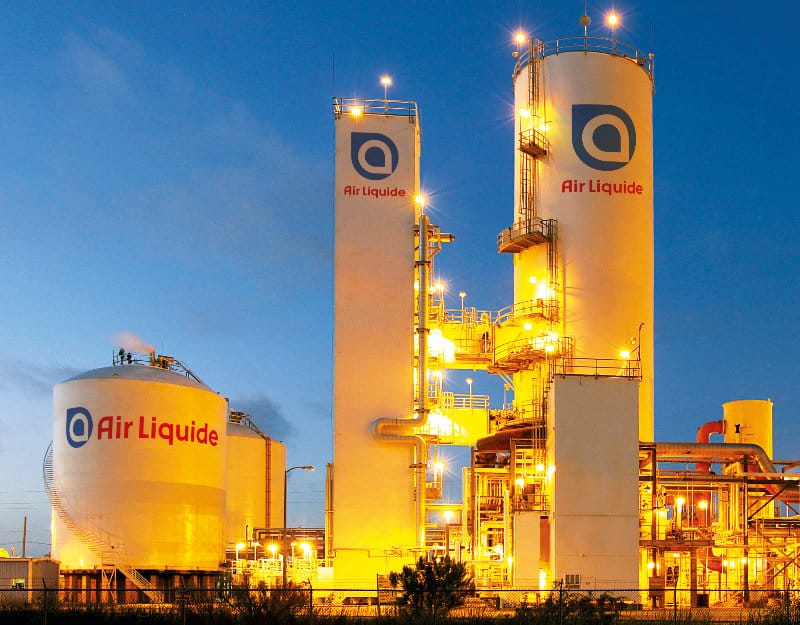
Although not well known by the general public, Air Liquide has a long history of innovation. Today, it’s one of the century-old companies that are the pride and joy of France’s CAC 40. Its new pet project? Hydrogen cars.
It all began in 1902, when two engineers invented a cryogenic process (at very low temperatures, around minus 150 ° C) to separate gasses in the air (oxygen, azote, argon). “The process called for liquefying air, hence the name Air Liquide,” explains Jean-Marc de Royère (H.86), a member of the executive committee since 2000. It was certainly an innovative process, but its applications seemed limited. In the beginning, it was used in welding, which requires argon. In 1907, the inventors turned to Japan, which was in the middle of a war with Russia and needed a great deal of welding to maintain its fleet of warships. The young company required significant investments in order to build factories and market gas molecules, and it was listed on the Paris Bourse beginning in 1913. While Air Liquide was mainly active in the industrial sector, the company continued to seek out new markets.
Hydrogen sends the Ariane rocket into space … and removes sulphur from gasoline!
From the bottom of the sea to outer space
In 1943, the innovative company perfected, in partnership with Commander Cousteau, the first prototype of an autonomous diving suit, thanks to the invention of the regulator (a mechanism that can be used to control the pressure level of gas, allowing divers to breathe from a tank of oxygen during a dive). The subsidiary Aqua Lung was established to market scuba-diving equipment to the general public. In the 1970s, Air Liquide began to produce hydrogen to fuel the Ariane rocket, since this gas is particularly suited to space travel.
-
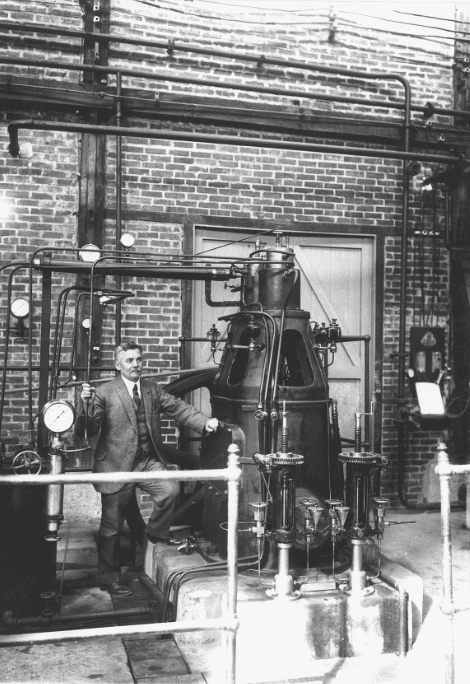
1902 : The company Air Liquide was born through the partnership of Paul Delorme, a visionary investor, and Georges Claude, who had developed a process to liquefy air. -
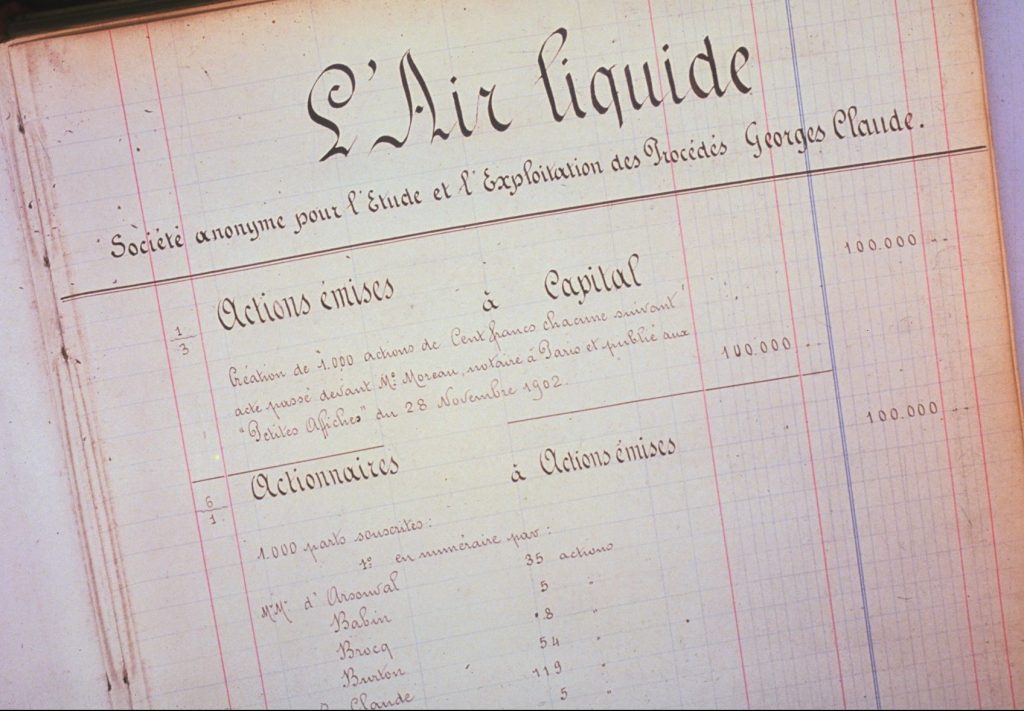
1913 : The name Air Liquide was listed on the Paris Bourse. Today, Air Liquide has around 410,000 individual stockholders who hold 32% of the group’s capital. -
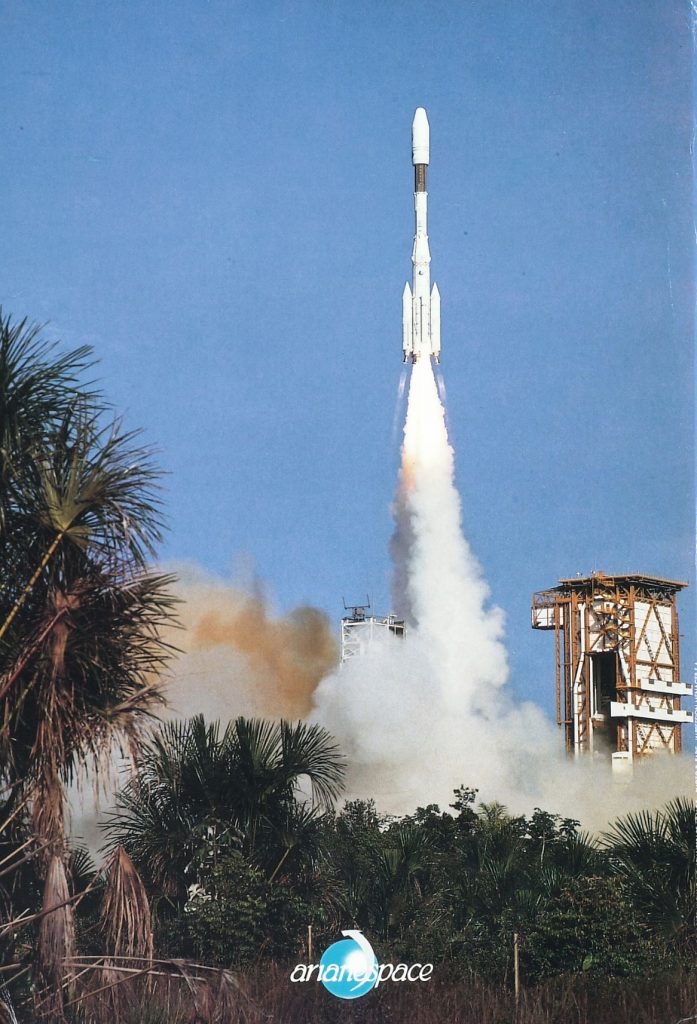
1979 : A giant step forward for the European aerospace sector: the Ariane rocket was launched into space for the first time. Its thrust was achieved thanks to hydrogen fuel tanks developed by Air Liquide. -
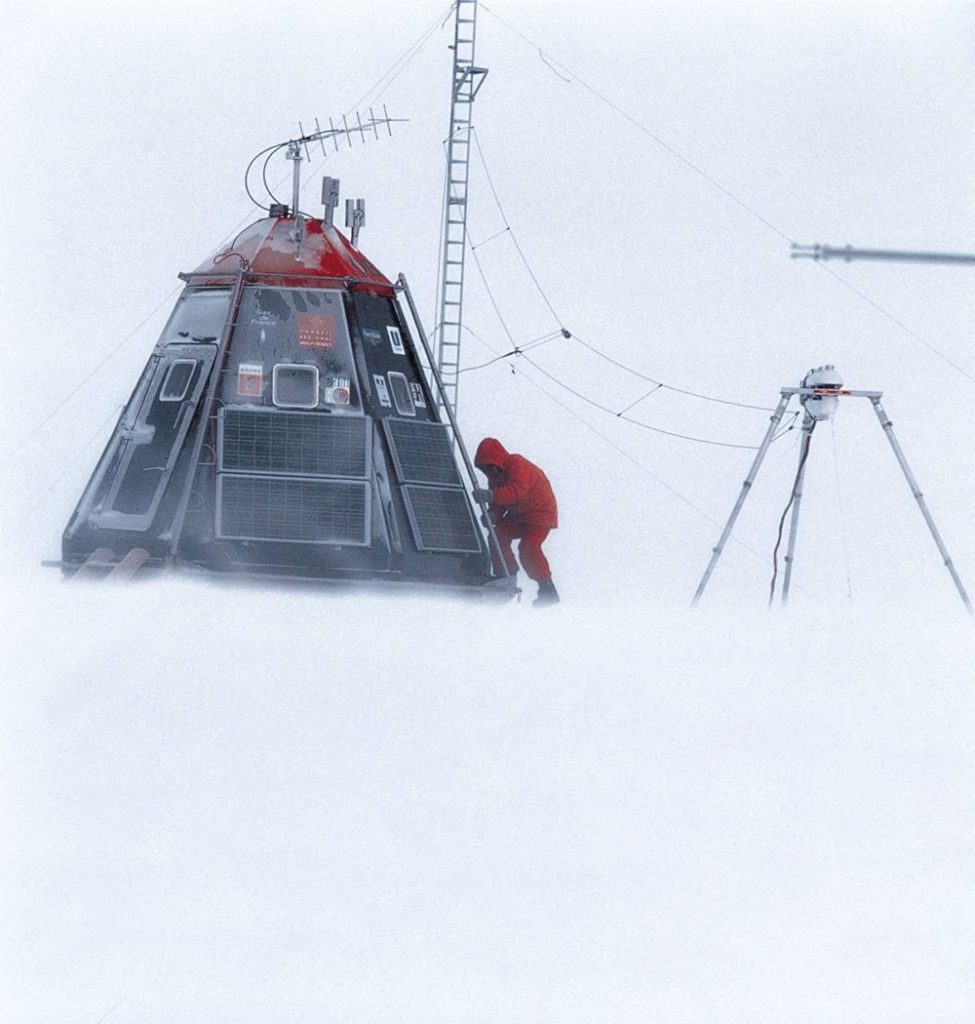
2001 : In May, Air Liquide established Axane, a company specializing in fuel cells. Beginning in 2002, next-generation fuel cells were employed in the Polar Observer capsule for the Banquise Mission. -
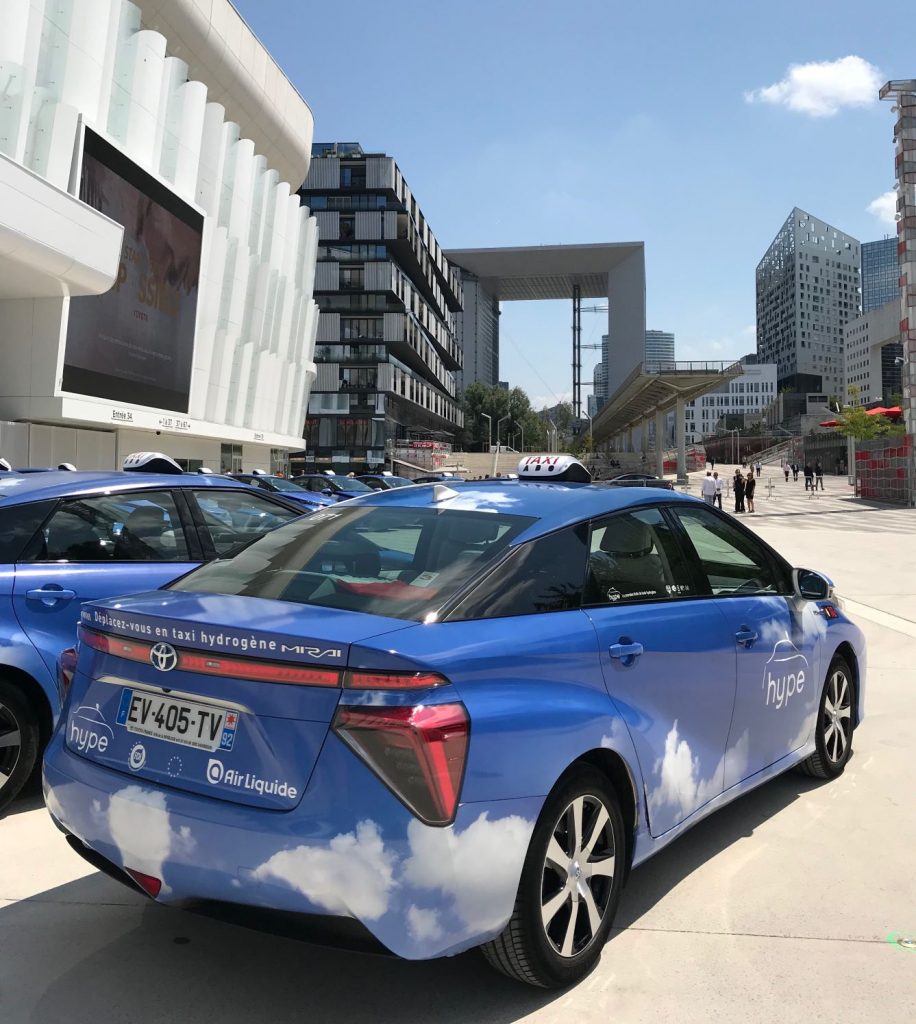
2015 : During COP 21, the first hydrogen service station for Hype taxis opened in Paris, near the Pont d’Alma, not far from Air Liquide’s headquarters! -
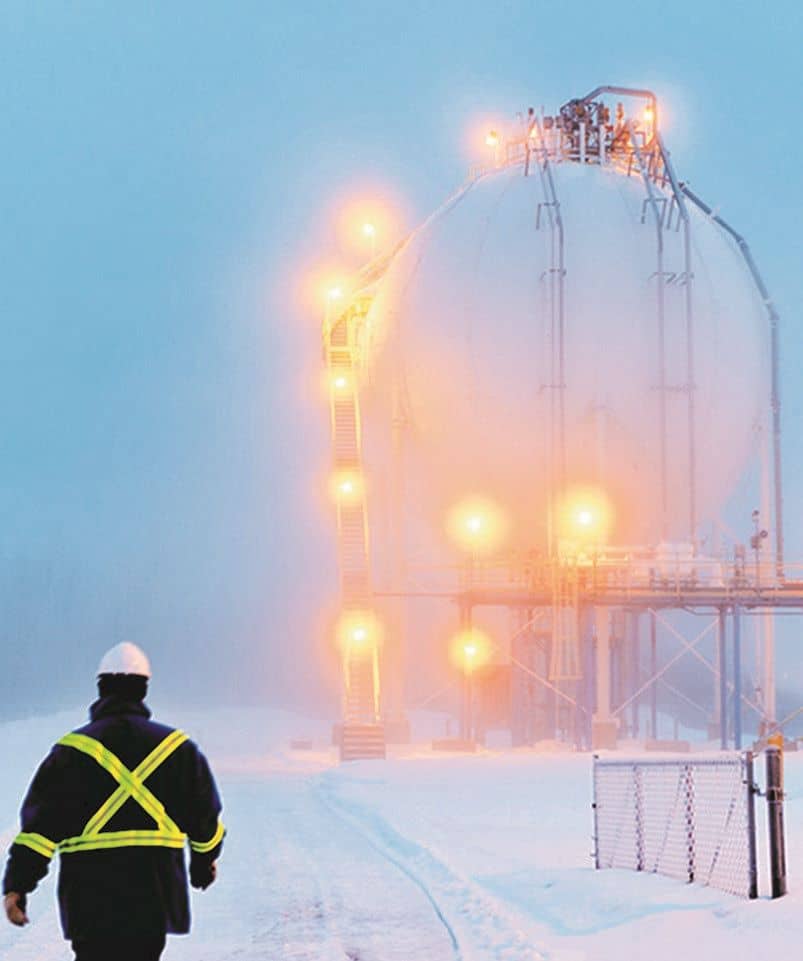
2019 : In February, the group announced the construction, in Quebec, of the world’s biggest Proton Exchange Membrane electrolyzer for the production of carbon-free hydrogen. Its capacity is 20 megawatts.
Although a niche market, an industrial application for hydrogen was developed in 1995. “European forests were dying because of acid rain. Hydrogen allows for recuperating sulphur found in gasoline. So, the refinery sector began to use industrial hydrogen,” explains Jean-Marc de Royère. Building on this experience, Air Liquide is now targeting hydrogen-powered vehicles. The advantages? A hydrogen-powered car runs both cleanly and quietly, has an autonomy of 500 kilometers, and its tank can be filled up in less than five minutes!
A revolution on the road
As it attempts to cope with climate change, the auto sector views hydrogen-powered cars as a realistic alternative to electric vehicles. “In this field, our group is a pioneer. Our goal is to bring all the key players together to shape the market,” says Pierre-Étienne Franc (H.93), head of the group’s global hydrogen-energy activities. In a sector where collaboration is rare, Air Liquide is betting on collective efforts and setting up partnerships. In 2015, the group invested in the French start-up Hype, which operates a fleet of hydrogen-powered taxis (600 of these taxis will be in service in 2020). It has also established joint ventures in Europe and Asia (with Daimler, Shell, Total, Toyota, and even its competitor, Linde) in an effort to strengthen its position in an international market worth an estimated $130 billion, which could grow to $2.5 trillion in 2050!
Betting on the future
“Energy transition is a subject that concerns us all. It is therefore an important focus in the group’s communications, both internal and external. Hydrogen reflects Air Liquide’s capacity to invent the future,” explains Alexandra Rocca (H.86), head of communications. Air Liquide’s commitment to hydrogen development isn’t just an effort to enhance the group’s image, though; it’s an industrial growth strategy. “At Air Liquide, we are convinced that it will not be possible to achieve carbon-free energy without hydrogen,” declares Pierre-Étienne Franc.
Over the past few years, the group’s investment in hydrogen has grown from tens of millions to several hundreds of millions of euros. “Hydrogen used for transport is still a loss-making activity because it is still in the inception phase,” notes Guillaume Cottet (H.05), Director of Management Control. But no one doubts that hydrogen will be profitable over the long term. Pierre-Étienne Franc concludes, “By 2050, the market will be huge. If Air Liquide only captures one percent of that market, the group will double in size.”
Published by Thomas Lestavel

